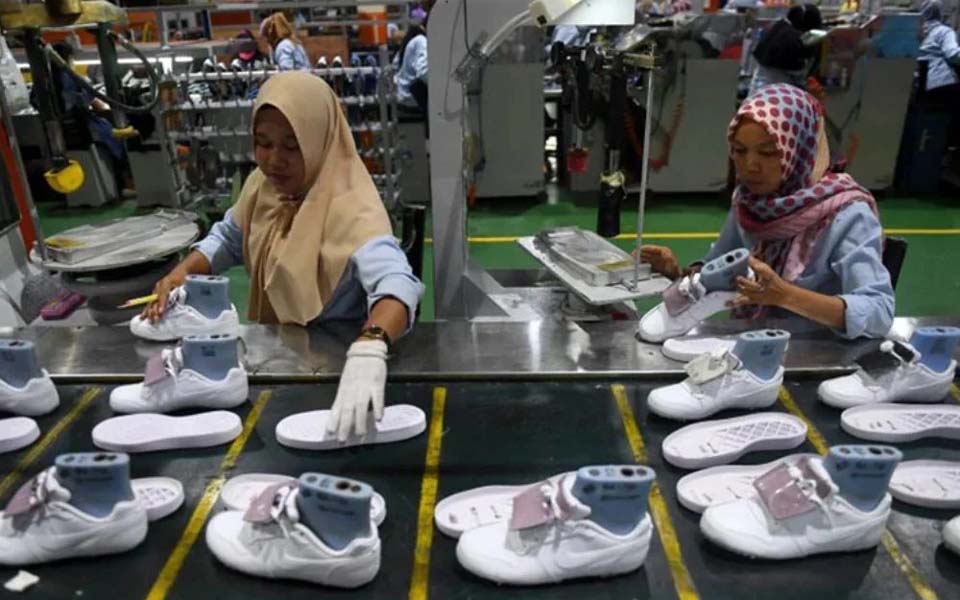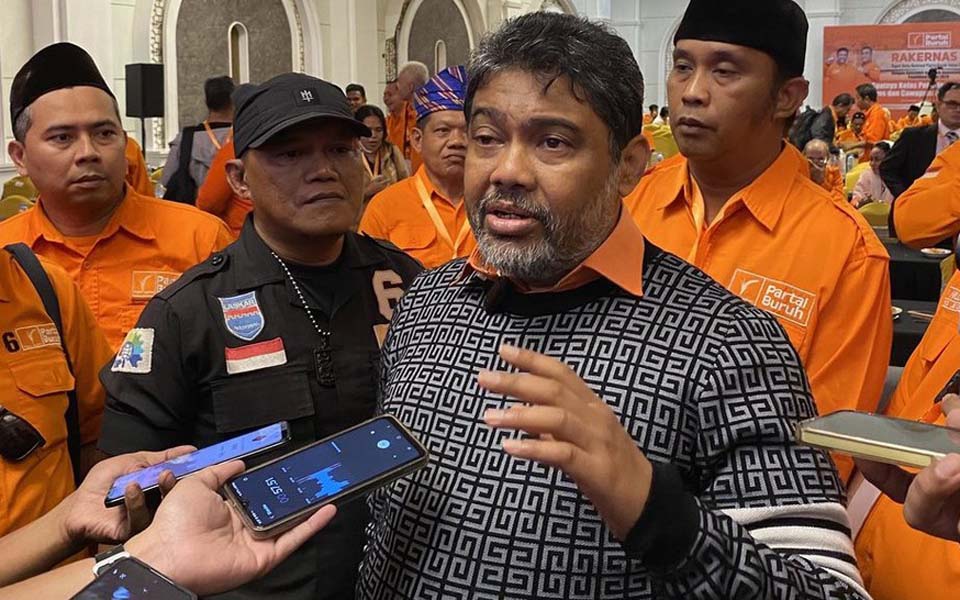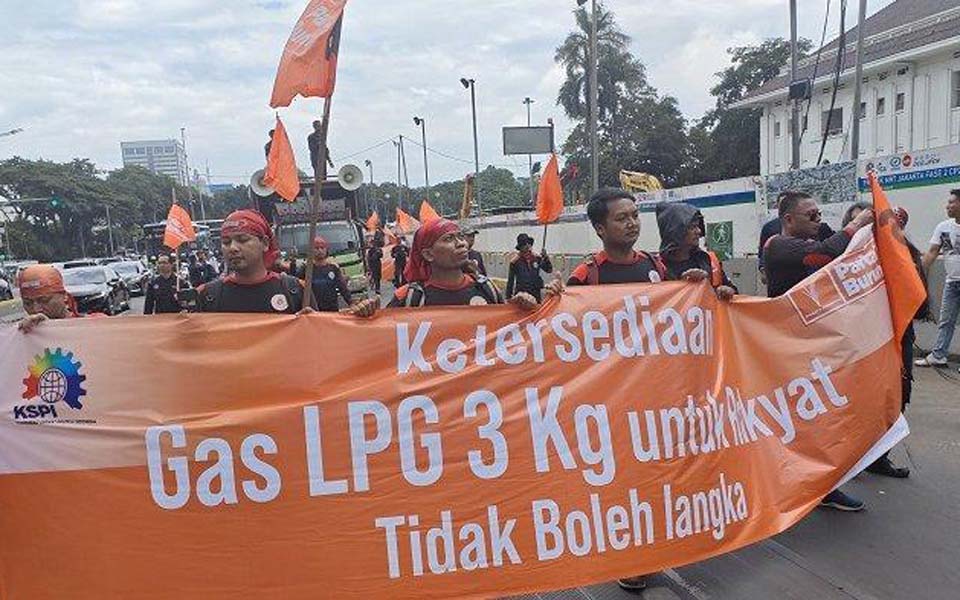Depok – In the lead up to the commemoration of International Labour Day or May Day, the Workers Challenge Alliance (ABM) and the Greater Jakarta Railway Workers Trade Union (SPKAJ) are planning massive actions in Jakarta on May 1.
As part of the preparations for May Day, the groups held a protest action at the University of Indonesia (UI) train station in front of the university this afternoon.
Aside from collecting donations from sympathisers, they also called for the main agenda item for May Day to be rejecting the results of the April 9 legislative elections. In order to attract support from UI students, they gave speeches and handed out hundreds of May Day leaflets with calls to reject the election results.
According to the workers, the recent elections were not a people’s election, were fraudulent and are illegitimate. The grounds for the workers’ rejection of the elections is because the ‘festival of democracy’ failed to give birth to an elite or assembly members who side with the interests of workers – for example who have the courage to abolish contract labour systems (outsourcing) which is extremely harmful to workers.
The action was also marred by an argument between demonstrators and a UI security guard who tried to stop the demonstration because they did not have permission from the rectorate. Nawawi – the UI security guard – said that they should have submitted a request for written permission with the rectorate two week before the demonstration. After negotiations however, they were finally allowed to hold speeches for half-an-hour or so.
The protesters chose UI as a site for the demonstration because students are the most critical in responding to the corruption and dishonesty that is occurring in the nation and the state. Unfortunately, it appeared as if the UI students were unconcerned about the labour movement and many leaflets that had been distributed were simply thrown away.
Action coordinator Surya Ginting meanwhile said that in addition to rejecting the 2009 elections, workers would be articulating four demands. First, calling a national industry and agrarian reform that is strong and self-sufficient. Second, the nationalisation of industry under the control of the ordinary people. Third, refusing to pay the foreign debt by selling off the country’s assets. And forth, the eradication of corruption and the seizure of corruptors’ assets.
There was also a speech by a former Hotel Indonesia employee who related how after the hotel’s assets were sold off, the situation for his family became miserable. [Okezone.com]
[Translated by James Balowski.]















